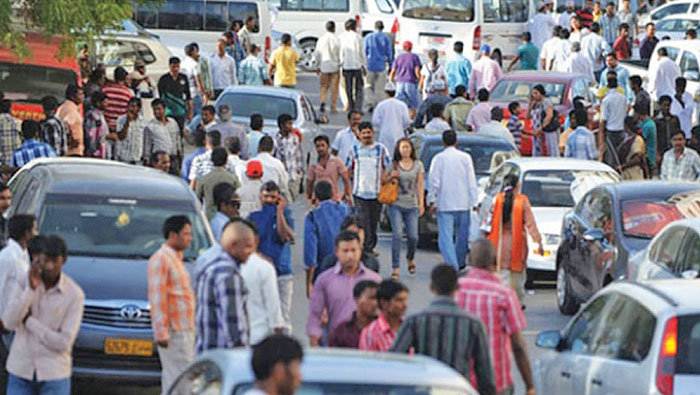
Muscat: Indians have once again overtaken Bangladeshis to become the largest expatriate community in Oman, new data has shown.
According to the latest data from the National Centre for Statistics and Information (NCSI), there are 664,227 Indians living and working in the Sultanate, as compared to 663,618 Bangladeshis, as of October 2018.
This is in comparison to 688,226 Indians who resided in Oman last December, and 692,164 Bangladeshis. Among the Indian population, 48,115 are female, while the vast majority – 616,112 – are male.
The same is true for the Bangladeshi workforce, of whom only 28,335 are female. The rest—635,283—are male.
One of the main reasons the number of Bangladeshi workers in the country has dropped is because the Sultanate has stopped issuing visas to migrants who come to the country for work.
The move was first brought about by the Royal Oman Police (ROP) in September 2016, in order to reduce the unskilled expat workforce in the country.
“There is a move to cut the Bangladeshi workforce in Oman,” said a police official at that time.
Unskilled workforce
“It’s not for all professions. The focus is only on reducing the unskilled workforce. Sanad offices have been directed by the ROP to follow these instructions.”
However, as the government continues to push forward with its Omanisation policy, it is worth noting that both Indian and Bangladeshi expat numbers have decreased since December last year.
The number of Indians decreased by 3.8 per cent between October 2017 and October 2018, while the number of Bangladeshis also fell by 4.4 per cent during the same time period.
In addition, the Pakistani expat population also fell during this period, dipping from 234,163 to 219,901, reflecting a decrease of 6.9 per cent.
Expat workers Times of Oman spoke to also said they had seen similar sentiments in the market. Shahidul Rafique, who worked as an accountant for a company in the country, said many of his colleagues had been told to leave.
“Normally, our company provides shared accommodation, with one person being given his own room, but for the last few months now, the rooms in my flat have been vacant because the company is prioritising more jobs for nationals,” he said.
“Omanis are being given first preference, and I think any country would do this for its own people.”
Sunil Prabhu, a doctor in the country, said his field continued to attract expats, although the same wasn’t true for other fields.
“I think some fields, especially the specialised ones, will continue to attract expatriates, but overall, the government is trying to put more and more locals in the workforce. For example, the pharmacy near our clinic recently hired an Omani, and I think this will continue to happen across many fields in the country.”
Ramanuj Venkatesh, a financial analyst with experience in both Oman and the UAE, said that this was part of the government’s plan to reduce its dependence on foreign workers, as the country decided to bring more and more Omanis into the workforce.
“Workers from overseas return to their home nations once their contracts have ended, so this is a deciding factor,” he explained.
“In addition, Indians represent a far larger workforce because of the size and population, which in turn represents a larger skilled workforce for companies that look to hire expat workers. At a time where visa constraints exist, companies are looking for skilled employees, and there are far more skilled workers available in India due to the population size.”